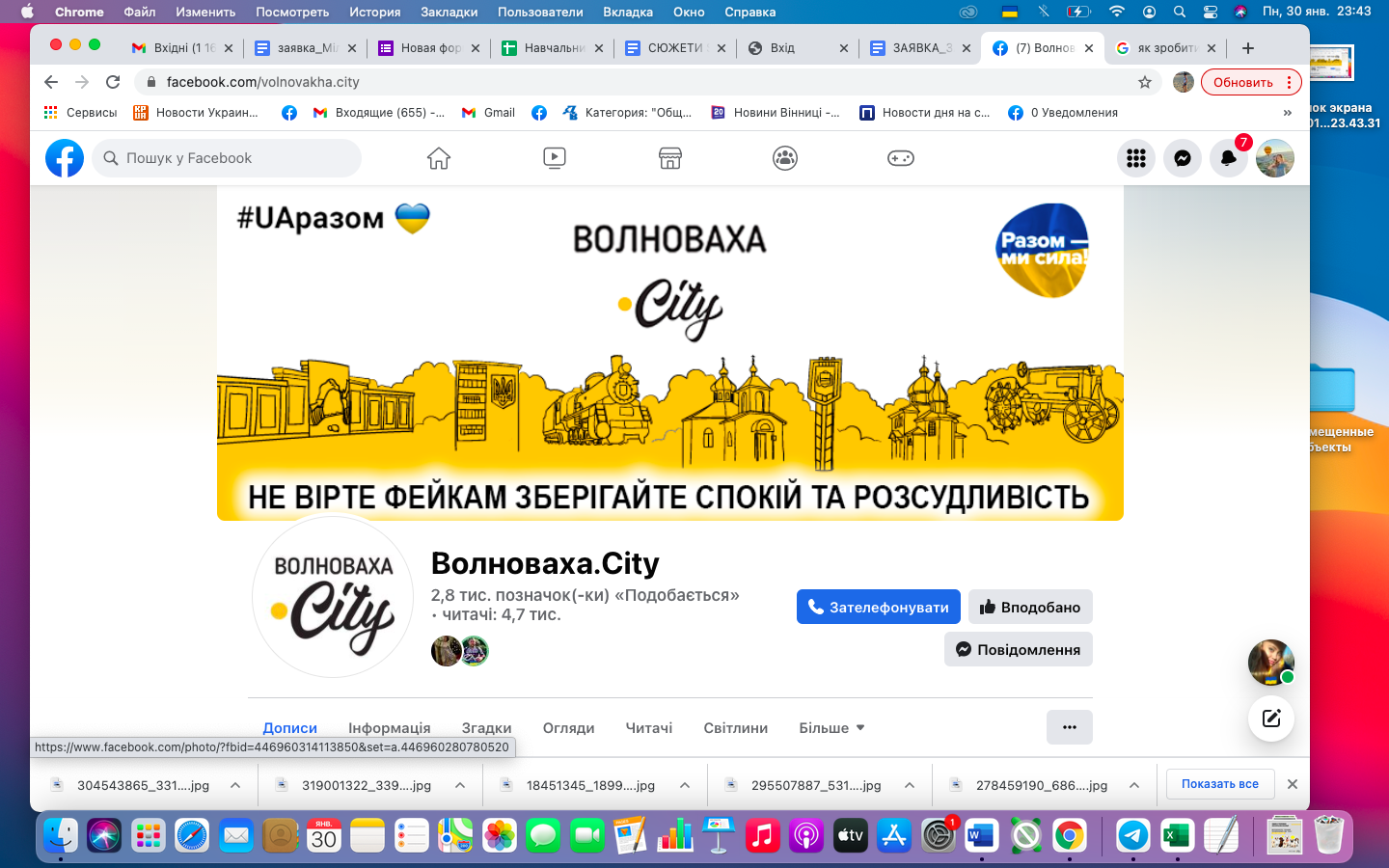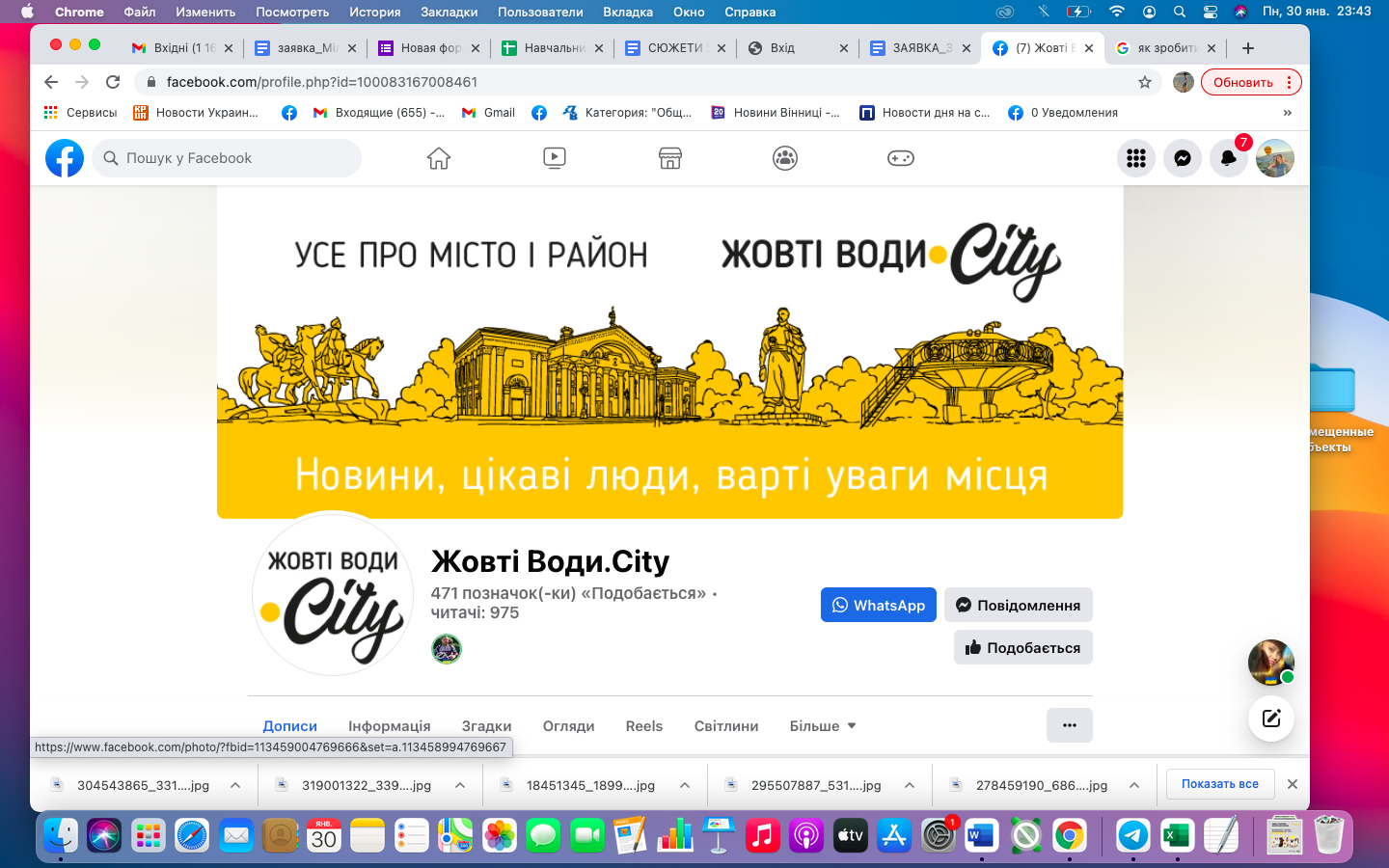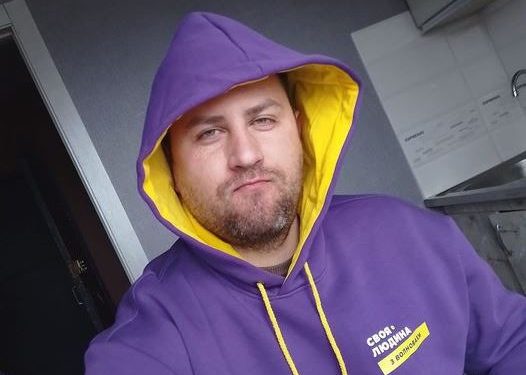During the night of February 23rd to 24th, Pavlo, the editor and founder of the “Volnovakha.City” website, was restless due to a fever. At around 2 a.m., a massive explosion rocked the city. His room lit up, glass rained down from high-rises, and Volnovakha, a town accustomed to explosions from nine years of war, faced an unprecedented situation.
– I woke up my wife, and while she was browsing the news, I went out to see what was happening. I came back, and she said, ‘The war has started, Russia is shelling major cities like Kyiv and Kharkiv,’ – recalled Pavlo Yeshtokin. – So, we started packing our things in the car. We didn’t prepare an emergency bag because we didn’t believe a full-scale invasion was underway. However, we have been mentally prepared for war since it began in 2014.
In the early hours of February 24th, Pavlo went to the gas station. Despite forming queues, there was still fuel. People hurriedly withdrew money from ATMs, others went to work, and minibusses were still operating around town. Yet, the locals hadn’t realized their lives would change forever within a few hours.
– We decided to leave the city with my wife early in the morning. We thought that if everything calmed down, we’d return. Because at that moment, I understood that our city was under the control of the enemy. Why did we understand? About a month before these events, in Volnovakha, people suddenly started renting apartments for a short period, but only men. It seemed suspicious. So, on February 24th, around 10 in the morning, our family headed towards Zaporizhzhia. My wife searched for places in nearby hotels during the trip, but everything was fully booked. We were driving on the Mariupol-Zaporizhzhia highway, which had just been opened – a high-quality, modern road. And it was filled with cars. Columns were already moving from Mariupol at that point, – the journalist explained.
Pavlo and his family first stopped in the city of Polohy, Zaporizhzhia. However, they were always looking for a house in a village where they could live for some time. Finally, a female volunteer offered them accommodation in the village of Kins’ki Rozdory.
– The house was comfortable and had a stock of firewood and a stove. We decided to stay there. I learned how to operate the stove in a day. On the second day, we woke up and saw Volnovakha being shelled. We read the news and saw that they were firing at residential buildings. I never thought that the military would fight against the civilian population in this war, – Pavlo Yeshtokin said.
In their new location, Pavlo immediately started working. In a Facebook group with 19,000 users, he posted announcements about searching for people and evacuation from Volnovakha.
– We compiled lists of those who had left. We posted them on Facebook so people could see, and maybe their relatives were among them. We created a Facebook group for people to discuss evacuation matters. And we shared videos of what was happening in Volnovakha. Not everyone left. And not only because they were waiting for a peaceful resolution but also due to fear. I have an acquaintance who is a cameraman; he supports Ukraine but didn’t leave because he couldn’t overcome his fear. During one evacuation, a bus with civilians was shot, and local propaganda spread rumors that Ukraine was shooting its own people. That’s how it was working at that time, – said Pavlo Yeshtokin. – But this didn’t last long because they cut off the electricity in Volnovakha, and people’s phones ran out of battery.
Similarly, the Yeshtokin family didn’t stay in Kins’ki Rozdory for long. After seven days, the power was cut off there as well, and it became clear that the war was advancing deeper into Ukraine.
– I had an additional car battery and a transformer that converts 12 volts to 220, so we used that to have light in the house. There was no internet on the phone. Work stopped. We were just listening to the radio. On the third day, we heard artillery shells and the sound of helicopters. On the seventh day, we woke up and went to Huliaipole. As we were driving, communication from my father finally came through. He and his family had been evacuated from Volnovakha. Just as we settled in Huliaipole, the occupiers captured Polohy. We had to spend the night in a bomb shelter. My wife and child fell asleep a little. I spent the whole night deleting information from my phone. I understood that it might come to a point where we would have to pass through the occupiers’ checkpoints. And the next morning, we went straight to Dnipro. A subscriber to our website offered us to stay in her apartment, – Pavlo concluded.

On the 12th day of the war, Volnovakha was completely occupied. The hope of returning home soon and the war ending faded away. In Dnipro, Pavlo lived for a month before the family decided to move to a small town to revive their business. Despite the challenging situation in the country, a new plan was brewing in the journalist’s mind.
– A friend of mine lives in Zhovti Vody. He offered us an apartment, and we agreed. It was initially difficult, but I focused on finding equipment to reopen the website. When we left, the equipment was left in the office. Later, the office was looted in Volnovakha. Everything we had earned was reduced to just a laptop, – recalled the journalist. They secured funding, acquired equipment, including a camera, recorder, microphone, and laptop, and started rebuilding their team.
During his time in Zhovti Vody, Pavlo spent two to three weeks reaching out for assistance. The Kyiv Journalist Solidarity Center of NUJU was the first to respond, offering equipment like a camera and a sturdy bag. The camera was used by a new journalist for their website “Zhovti Vody.City,” and the durable bag proved useful in tough conditions.
Supporting journalists during the war is the main mission of the Journalist Solidarity Center of NUJU. The equipment and items provided to Pavlo by NUJU through the Ukrainian Media Fund initiative were donated by Swedish media companies. This initiative was initiated by the Polish Gazeta Wyborcza in partnership with media organizations from Scandinavian countries. Thanks to strong support from colleagues, a new information website, “Zhovti Vody.City,” was launched in a small town in Dnipropetrovsk Oblast.
From the start, they partnered with the local media agency “ABO,” launching their Volnovakha website with mentor support. Amidst the war, “Zhovti Vody.City” gained funding. The Lviv Media Forum, Volyn Press Club, and Crisis Media Center joined, providing topics and even interviews. Civil organizations with European donors noticed their dedication after two months, offering support. “Don’t give up, keep working, and let us know your needs,” they said, as recounted by the media professional.

In 4 months of work on the “Zhovti Vody.City” website, 12,000 users have joined. They’ve even received their first advertising orders.
– We took the money and played it smart. We allocated part of the funds to support the ‘Volnovakha.City’ website, while the rest of the grant money went into developing the ‘Zhovti Vody.City’ information site. We hired a girl from a local TV channel that had shut down, paying her a minimal wage. Later, she received a separate grant for her salary. Currently, we have a grant for writing 28 articles about life in our city – shared the experiences of the journalist-refugee.
By the way, the presence of 12,000 users on the “Zhovti Vody.City” website is thanks to Pavlo’s attentiveness.

– In Zhovti Vody, people relied on TV and Facebook groups. Surprisingly, these groups were our competition. I wondered how to make our website popular and encourage reading and subscribing. That’s when the idea struck. With many dog owners in Zhovti Vody, I launched a contest for the best four-legged friend. Sixty participants joined, reposting dog pictures and promoting our site. This approach gained us seven thousand subscribers instantly. Later, we established a ‘VPERSHE’ info hub on our site, covering everything from bus schedules to fuel prices and medical services. Our mission is to prevent panic and keep people informed, – emphasized Pavlo Yeshtotkin.
In times of war, one must look at business differently, says the journalist-refugee. Then it will start working and bring dividends.
– Right now, I imagine myself as if I’ve been transported back to ancient times in a community where there are people meant to work, and here I arrive, thinking I’ll be the main informant. Firstly, don’t count on making a lot of money right now. Secondly, it’s better to seek information that can help others. Currently, during the war, people have opened up internal streams of energy in terms of helping others. Thirdly, tell people about people.
Like everyone who lost their city due to war, Pavlo dreams of Ukraine’s victory. He says he’ll head to his small Homeland as soon as it’s possible. However, he doesn’t plan on returning to his hometown. He wants to live and develop his business in Zhovti Vody.
This series, titled Executed Free Speech, is created as part of a project Drawing Ukrainian And International Audience’s Attention To Serious Violations Of Human Rights And Crimes Against Journalists And Mass Media By The Russian Federation, which is performed by the National Union of Journalists of Ukraine, with support from the Swedish non-profit organization Civil Rights Defenders.
JOURNALISTS ARE IMPORTANT. Stories of Life and Work in Conditions of War is a cycle of materials prepared by the team of the NUJU with the support of the Swedish human rights organization Civil Rights Defenders.
#CRD

 THE NATIONAL UNION OF
JOURNALISTS OF UKRAINE
THE NATIONAL UNION OF
JOURNALISTS OF UKRAINE
















Discussion about this post